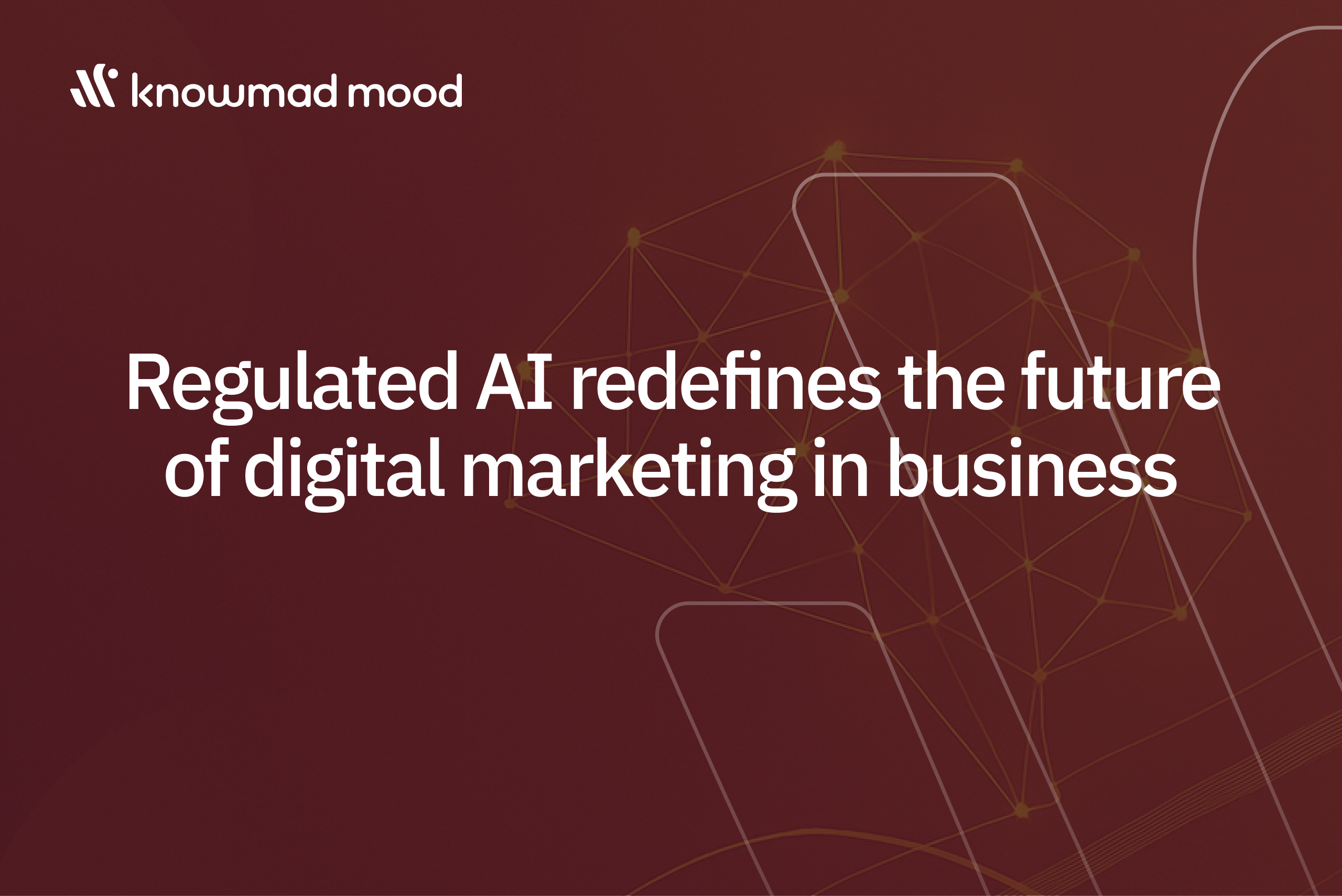
Regulated AI redefines the future of digital marketing in business
- The strategic use of artificial intelligence in digital marketing represents an opportunity for Spanish businesses and allows them to align their innovation with the standards that will set the course of the European market.
- AI is driving an evolution of digital marketing towards more intelligent, automated and data-centric models.
Madrid, 14 May 2025 – On the occasion of World Internet Day, knowmad mood, a leading technology multinational in digital transformation solutions, claims the transformative role of Artificial Intelligence (AI) in digital marketing. The Spanish consulting firm takes stock of the profound structural impact of AI, highlighting not only its practical applications, but also its insertion in the current regulatory framework, challenges and trends for companies in Spain.
AI has established itself as an essential lever for competitiveness and, as it applies to marketing, it is driving an evolution towards more intelligent, automated and data-centric models. From hyper-personalised experiences to real-time campaign optimisation, content creation through generative AI and customer service through chatbots, its applications are increasing efficiency and improving the relationship between brands and users.
“Beyond using it as a technological tool, artificial intelligence must be integrated as a structural asset of our business strategies. The Spanish business community must move decisively towards an ethical and effective adoption of AI, especially in areas such as marketing, where the impact on the end customer is direct and significant,” says Eduardo Cano, Customer Business Development Manager at knowmad mood.
A new regulatory paradigm
The entry into force of the EU’s Artificial Intelligence Act (AI Act) and its close link with the General Data Protection Regulation (GDPR) redefine the framework within which European companies must make use of AI, providing a regulatory backbone that promotes ethical, transparent and safe practices.
In line with the European model, Spain has been proactive in building a competitive and, above all, secure digital environment. To this end, it has taken significant measures, such as the National Artificial Intelligence Strategy (ENIA) and the development of the first regulatory sandbox for AI in the European Union, which position the country as a benchmark in regulated innovation.
Challenges in integrating AI in marketing
- Algorithmic transparency: organisations must understand and report on the algorithms that make segmentation, personalisation and automation decisions.
- Preventing bias: the ethical use of AI involves avoiding structural inequalities in relation to campaigns and target audiences.
- Data protection and privacy: user consent and control over their personal information should be understood as the basis for hyper-personalisation.
- Inequality in adoption: many SMEs in Spain still do not have access to advanced technologies, generating a digital divide that impacts on the business fabric as a whole.
Trends that will shape the application of AI
- Adaptive continuous learning models that dynamically adjust to consumer behaviour.
- Algorithmic ethics as a competitive advantage by incorporating principles of fairness and accountability from the design phase.
- Low-code or no-code platforms with AI capabilities that democratise access to advanced automation, analytics and content creation capabilities.
- Multi-channel generative content, with AI producing text, images and video tailored to each audience and channel.
- Smart omni-channel integration, improving the user experience.

